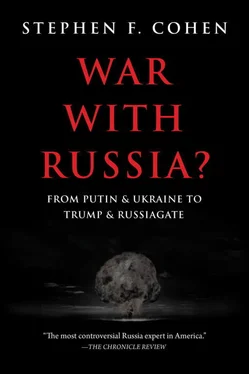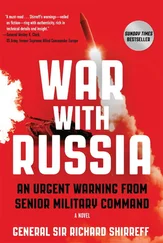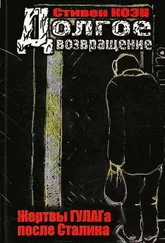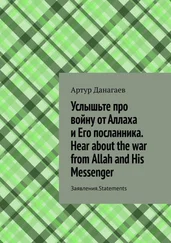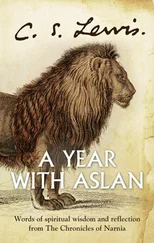Yeltsin repeatedly dealt that historic Russian experiment grievous, possibly fatal, blows. Among his other acts, by using tanks, in October 1993, to destroy Russia’s freely elected parliament and with it the entire constitutional order that had made Yeltsin president. By waging two bloody wars against the tiny breakaway province of Chechnya. By enabling a small group of Kremlin-connected oligarchs to plunder Russia’s richest assets and abet the plunging of some two-thirds of its people into poverty and misery, including the once-large and professionalized Soviet middle classes. By rigging his own reelection in 1996. And by enacting a “super-presidential” constitution, at the expense of the legislature and judiciary but to his successor’s benefit. Putin may have furthered the de-democratization of the Yeltsin 1990s, but he did not initiate it.
• Nor did Putin then make himself a Tsar or Soviet-like “autocrat,” which means a despot with absolute power to turn his will into policy. The last Kremlin leader with that kind of power was Stalin, who died in 1953, and with him his 20-year mass terror. Due to the increasing bureaucratic routinization of the political-administrative system, each successive Soviet leader had less personal power than his predecessor. Putin may have more, but if he really is a “cold-blooded, ruthless” autocrat—“the worst dictator on the planet” 12—tens of thousands of protesters would not have repeatedly appeared in Moscow streets, sometimes officially sanctioned. Or their protests (and selective arrests) been shown on state television.
Political scientists generally agree that Putin has been a “soft authoritarian” leader governing a system that has authoritarian and democratic components inherited from the past. They disagree as to how to specify, define, and balance these elements, but most would also generally agree with a brief Facebook post, on September 7, 2018, by the eminent diplomat-scholar Jack Matlock: “Putin … is not the absolute dictator some have pictured him. His power seems to be based on balancing various patronage networks, some of which are still criminal. (In the 1990s, most were, and nobody was controlling them.) Therefore he cannot admit publicly that [criminal acts] happened without his approval since this would indicate that he is not completely in charge.”
• Putin is not a Kremlin leader who “reveres Stalin” and whose “Russia is a gangster shadow of Stalin’s Soviet Union.” 13, 14These assertions are so far-fetched and uninformed about Stalin’s terror-ridden regime, Putin, and Russia today, they barely warrant comment. Stalin’s Russia was often as close to unfreedom as imaginable. In today’s Russia, apart from varying political liberties, most citizens are freer to live, study, work, write, speak, and travel than they have ever been. (When vocational demonizers like David Kramer allege an “appalling human rights situation in Putin’s Russia,” 15they should be asked: compared to when in Russian history, or elsewhere in the world today?)
Putin clearly understands that millions of Russians have and often express pro-Stalin sentiments. Nonetheless, his role in these still-ongoing controversies over the despot’s historical reputation has been, in one unprecedented way, that of an anti-Stalinist leader. Briefly illustrated, if Putin reveres the memory of Stalin, why did his personal support finally make possible two memorials (the excellent State Museum of the History of the Gulag and the highly evocative “Wall of Grief”) to the tyrant’s millions of victims, both in central Moscow? The latter memorial monument was first proposed by then-Kremlin leader Nikita Khrushchev, in 1961. It was not built under any of his successors—until Putin, in 2017.
• Nor did Putin create post–Soviet Russia’s “kleptocratic economic system,” with its oligarchic and other widespread corruption. This too took shape under Yeltsin during the Kremlin’s shock-therapy “privatization” schemes of the 1990s, when the “swindlers and thieves” still denounced by today’s opposition actually emerged.
Putin has adopted a number of “anti-corruption” policies over the years. How successful they have been is the subject of legitimate debate. As are how much power he has had to rein in fully both Yeltsin’s oligarchs and his own, and how sincere he has been. But branding Putin “a kleptocrat” 16also lacks context and is little more than barely informed demonizing.
A recent scholarly book finds, for example, that while they may be “corrupt,” Putin “and the liberal technocratic economic team on which he relies have also skillfully managed Russia’s economic fortunes.” 17A former IMF director goes further, concluding that Putin’s current economic team does not “tolerate corruption” and that “Russia now ranks 35th out of 190 in the World Bank’s Doing Business ratings. It was at 124 in 2010.” 18
Viewed in human terms, when Putin came to power in 2000, some 75 percent of Russians were living in poverty. Most had lost even modest legacies of the Soviet era—their life savings; medical and other social benefits; real wages; pensions; occupations; and for men life expectancy, which had fallen well below the age of 60. In only a few years, the “kleptocrat” Putin had mobilized enough wealth to undo and reverse those human catastrophes and put billions of dollars in rainy-day funds that buffered the nation in different hard times ahead. We judge this historic achievement as we might, but it is why many Russians still call Putin “Vladimir the Savior.”
• Which brings us to the most sinister allegation against him: Putin, trained as “a KGB thug,” regularly orders the killing of inconvenient journalists and personal enemies, like a “mafia state boss.” This should be the easiest demonizing axiom to dismiss because there is no actual evidence, or barely any logic, to support it. And yet, it is ubiquitous. Times editorial writers and columnists—and far from them alone—characterize Putin as a “thug” and his policies as “thuggery” so often—sometimes doubling down on “autocratic thug” 19—that the practice may be specified in some internal manual. Little wonder so many politicians also routinely practice it, as did US Senator Ben Sasse: “We should tell the American people and tell the world that we know that Vladimir Putin is a thug. He’s a former KGB agent who’s a murderer.” 20
Few, if any, modern-day world leaders have been so slurred, or so regularly. Nor does Sasse actually “know” any of this. He and the others imbibe it from reams of influential media accounts that fully indict Putin while burying a nullifying “but” regarding actual evidence. Thus another Times columnist: “I realize that this evidence is only circumstantial and well short of proof. But it’s one of many suspicious patterns.” 21This, too, is a journalistic “pattern” when Putin is involved.
Leaving aside other world leaders with minor or major previous careers in intelligences services, Putin’s years as a KGB intelligence officer in then–East Germany were clearly formative. Many years later, at age 67, he still spoke of them with pride. Whatever else that experience contributed, it made Putin a Europeanized Russian, a fluent German speaker, and a political leader with a remarkable, demonstrated capacity for retaining and coolly analyzing a very wide range of information. (Read or watch a few of his long interviews.) Not a bad leadership trait in very fraught times.
Moreover, no serious biographer would treat only one period in a subject’s long public career as definitive, as Putin demonizers do. Why not instead the period after he left the KGB in 1991, when he served as deputy to the mayor of St. Petersburg, then considered one of the two or three most democratic leaders in Russia? Or the years immediately following in Moscow, where he saw first-hand the full extent of Yeltsin-era corruption? Or his subsequent years, while still relatively young, as president?
Читать дальше
